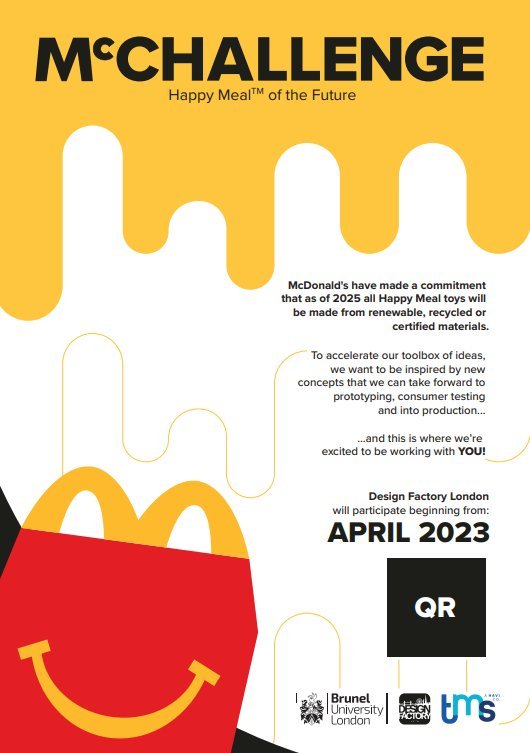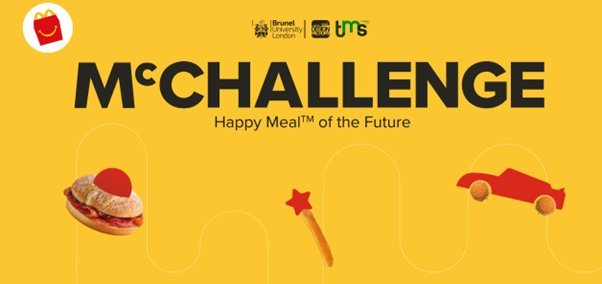Insights from Brunel University: Creative Approaches to Building Employability Skills
Alternative approaches to work experience
Despite 20% of undergraduates at Brunel completing a 1-year placement each year, feedback from students who choose not to take the placement option mention; the time commitment, the need to give up their part time job, wanting to graduate and start earning as soon as possible, along with many other reasons.
There’s plenty of evidence available to demonstrate the positive impact placements have on graduate outcomes. The 2019/20 GOS data for Brunel highlighted that graduates who completed a 1-year placement were 20% more likely to be in highly skilled work or PG study than those who didn’t complete a placement year.
So, how can universities improve the employment prospects for students who choose not to opt for the placement year?
Industry challenges
Short term forms of work experience provide students with an insight into the world of work, and universities are generally very good at highlighting this option and supporting students with their internship search and applications.
To complement this, Brunel has been developing live industry challenges as an extra-curricular activity, allowing students to take part in these alongside their studies. An employer sponsor sets a sector challenge they are currently facing, students are then put in to small, transdisciplinary teams of 5-6 to work on the project. Challenges usually take place over 2-10 weeks, with students attending weekly workshops and drop ins. The challenge culminates in a final pitching event to a panel of (often senior) employees of the organisation. As this type of programme has developed, we now offer ‘sprint’ challenges for 2-3 weeks in addition to the main challenges lasting 6-10 weeks.
The journey to developing industry challenges…
Third Sector industry challenge
For just under 10 years, the Professional Development Centre have been running the READY Employability Programme. This 10-week employability programme was established to provide students with the opportunity to develop their employability skills by working in small, transdisciplinary teams on a specific project.
The programme itself focuses on the United Nations High Commissioner for Refugees (UNHCR)’s work in a refugee settlement in Zambia. The camp is home to over 22,000 refugees who fled civil wars in the region.
The challenge is run annually in the autumn term and focuses on designing, in a team, a product or a service to solve real-life problems faced by people living in the Mayukwayukwa refugee settlement in Zambia. Full information on the programme can be found here.
The programme has been steadily growing in recent years and now sees over 300 students participate in this extra-curricular challenge, targeted at new UG and PG students.
Due to the increased demand for this type of experience and the desire to scale and diversify the type of organisations taking part, we looked at growing the number of industry challenge initiatives, with a long-term view of building in some form of accreditation.
The Pilot – Chelsea Challenge 1.0
Many courses already offer students the chance to work on a live industry brief, but not all. In 2020 Brunel developed a relationship with Chelsea Football Club Foundation, the charitable arm of Chelsea FC. They had recently started to run live industry challenges with a French business school, and colleagues and I were keen to pilot the concept at Brunel, opening it up to students from all subject areas. Rather than offer a 10-week challenge, we piloted a condensed 3 week ‘sprint’ version.
This was a collaborative effort between the Professional Development Centre, Co-Innovate (an ERDF funded programme) and Design Factory Global Network. This small project team worked in collaboration with Chelsea FC Foundation, which involved 100 students taking part in this 3-week challenge, focused on using Euro2020 to help drive traffic back to the clubs’ social channels. The winners pitched their idea to 4 Chelsea FC staff members, with the winners awarded with a VIP tour of the Stamford Bridge stadium.
Find out more about the challenge here.
Where are we now?
Since the initial pilot with Chelsea FC Foundation, the team have now run 2 additional Chelsea Challenges and started to work with a wider selection of employers. Last year the team partnered with Tim Campbell, the first winner of The Apprentice and an employee of Zishi, to run a challenge with this financial trading training business. The team also partnered with QI Digital, a fintech business, to run two separate challenges lasting 3 weeks at the end of the summer term. Tim Campbell and colleagues attended the on campus final, attended by just under 100 students.
More recently, Brunel partnered with D-ford, the design and innovation section of Ford motor company on a challenge entitled,: ‘reimaging mobility in rural areas’. This 6-week challenge culminated in a live final on campus, where students were required to pitch in front of 6 senior designers from Ford. Approximately 80 students completed the challenge and the winning team will be visiting the D-Ford offices, located on the former Olympic Media City site in Stratford.
Currently the team are working with McDonald’s on the McChallenge, an opportunity for students to use their creativity and Design Thinking skills to create a sustainable, environmentally friendly, and engaging Happy Meal toy for children. The challenge is divided into five weeks of activities: Project Launch & Research, Design, Prototyping, Business & Pitching, and Final Gala.
This challenge has been run through the Design Factory Global Network, which Brunel is a current member. This has allowed the industry challenge to go global, with student teams from countries around the world taking part. All sessions are being delivered remotely to help facilitate this.
Challenges
As an extra-curricular activity, the biggest challenge has not been encouraging students to take part, but on keeping them engaged throughout the 2-10-week challenge, ensuring they do not drop out. To help address this, a WhatsApp group is set up for each challenge and managed by the project team. This keeps students engaged and allows us to share key messages.
Student teams are deliberately put together randomly by the project team to simulate real working life, this can challenge the students at times, with the project team on hand to resolve issues that may arise.
Opportunities
A key benefit has been the transdisciplinary aspect of these challenges, bringing together students from different subjects adds an extra element of creativity and innovation, with each team member approaching the task through a different lens.
The project team have deliberately worked with well-known employers, such as Chelsea FC, D Ford and MacDonald’s. This works well on two levels, firstly it acts as an effective marketing tool to encourage students to sign up to the challenges and secondly, it helps enhance students’ CVs, providing a good talking point at interview. It has also proved useful in getting prospective employers on board, knowing that the project team has experience of working with globally recognised brands.
And finally, working with the Design Factory Global Network offers the opportunity to have international teams take part from member countries around the world, offering an additional enhancement to the challenges.
The future...
The key challenge has been how increase the number of students who benefit from industry challenges and build these into academic programmes, so that it’s not just the enthusiastic minority accessing this type of opportunity. We are approaching this in 2 different ways:
Firstly, the team are scoping out the option of accrediting this as a form of virtual work experience, allowing students to have ‘with internship’ added to their degree certificate. This would allow students to receive official recognition of their industry challenge experience and for the University to validate it. This could act as an additional incentive to increase these types of experiences. To ensure the transdisciplinary element is maintained, we are looking to have at least three courses on board with this pilot. It’s worth noting that at Brunel University, our awards can be issued either ‘with placement’ (1 year) or ‘with internship’ (shorter term work experience).
Secondly, we are seeking to build industry challenges into existing programmes and include them as part of a credit bearing module. Currently we are going through the process of introducing this to one Master’s programme that hadn’t previously had an assessed industry project. The team are also scoping out 2 further Masters programmes to allow the projects to be transdisciplinary.
About the author
Jonathan Bainbridge is Director of the Professional Development Centre at Brunel University London. He has 17 years’ experience working in the careers and employment space in both Further and Higher Education. He spent 6 years at The University of Reading, where he helped lead the team to win ‘Best Employability Service’ Award 2018 at the National Undergraduate Employability Awards. He is passionate about developing students’ potential and connecting them with employers to broaden their experience and help them make informed career choices. At Brunel he is responsible for the Carers and Employment Service, which also includes Modern Foreign Languages and Entrepreneurship. Over the past three years the team have won several national awards in recognition for their work in social mobility, careers support and employer engagement. More recently the team have been developing innovate initiatives with Chelsea Football Club Foundation, D Ford and Goldman Sachs, providing engaging opportunities for students to sharpen their employability skills.








